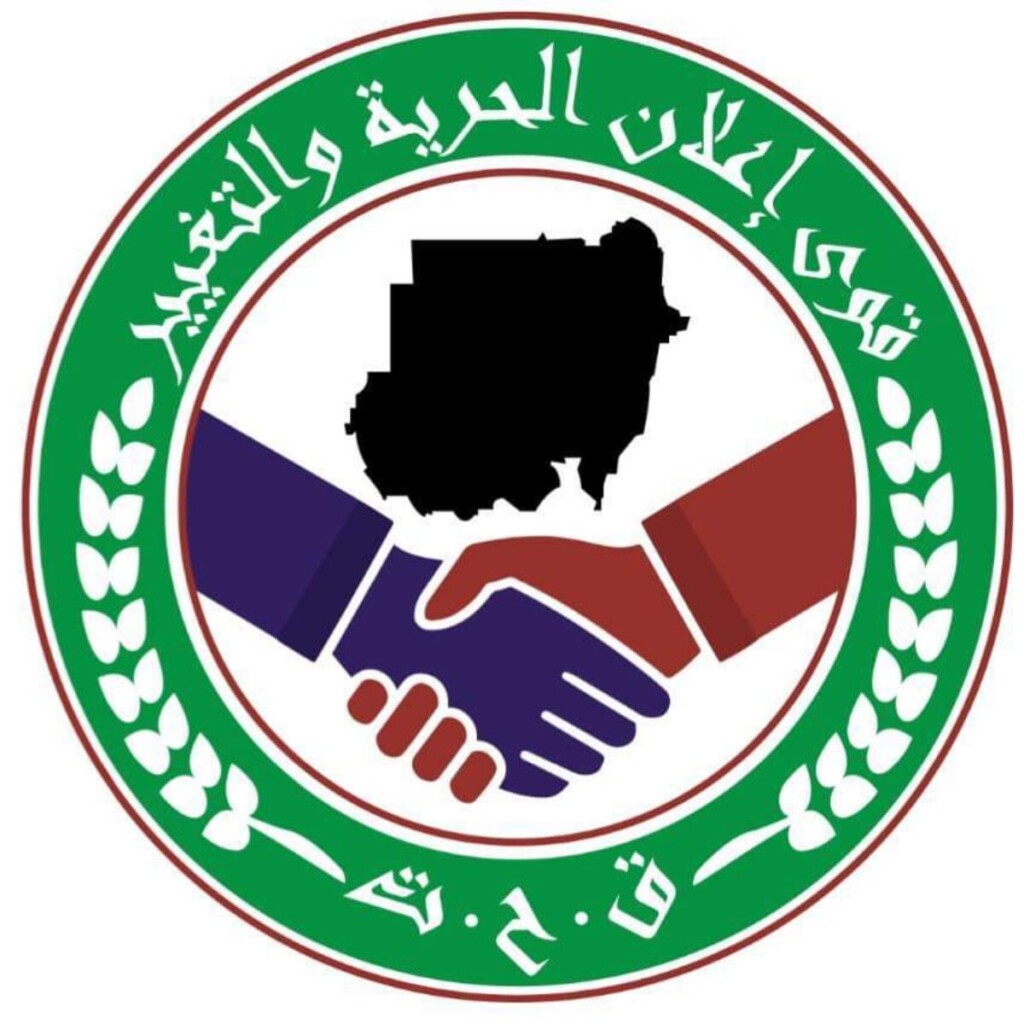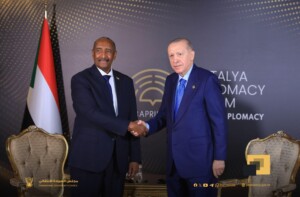FFC-CC: ‘Sudan Final Agreement imminent’

FFC logo
KHARTOUM –
The Central Council of Sudan’s mainstream Forces for Freedom and Change (FFC-CC) expects the signing of the Final Agreement and the formation of a new government within three weeks, following news of the second preparatory dialogue conference on (transitional) justice, which was scheduled last week.
The spokesperson for the Sudanese Professionals Association and member of the Executive Bureau for the FFC-CC, El Riyeh El Sadig, told Radio Dabanga that “there is a political will and seriousness from the involved parties to make the political process a success with the presence of international guarantors”.
He added that the dialogue conferences on the remaining four issues (justice, security and military reform, the Juba Peace Agreement, and eastern Sudan) organised by the signatories to the Framework Agreement will be concluded within two weeks.
According to tEl Sadig, the roadmap for the Conference on Justice and Transitional Justice “has been endorsed”, and discussions will continue to take place after the government’s formation, so that the “necessary steps and requirements” are provided”.
On the issue of security and military reform, he said that it is both political and technical. The Framework Agreement mentions the merging of the various (para)military forces into one army, “which needs a time map”.
He said that the case of eastern Sudan “is not complicated and can be resolved quickly with the participation of the stakeholders”. Adding that that its solution lies in Khartoum, due to the capital’s politicians benefiting from “certain gains and political calculations”, in turn complicating a comprehensive resolution for the region.
Furthermore, arrangements are underway to address the contents of the 2020 Juba Peace Agreement (JPA) with the participation of the signatories (the member groups of the Sudan Revolutionary Front rebel alliance) and representatives of regional and international countries. Problems within the JPA’s track protocols have been chiefly concerned with the delay in security arrangements, and the formation of joint forces to protect civilians, as well as absorbing militias in the region, and disarming former rebel combatants.
El Sadig maintained his optimism over the success of the conferences in addressing the remaining issues, “especially as they aim to integrate the views and contributions of the stakeholders”. The organising committees will rephrase the outcomes legally and politically and incorporate them into the text of the Final Agreement.
As for the refusal of Sudan Liberation Movement faction under the leadership of Minni Minawi (SLM-MM) and Jibril Ibrahim, the head of the Justice and Equality Movement (JEM) to join the current political process, he said that “it cannot be justified, especially as they signed the Juba Peace Agreement with the government”.
UNITAMS
Head of the United Nations Integrated Transition Assistance Mission in Sudan (UNITAMS), Volker Perthes, expressed his optimism on Tuesday about the joining of the signatory movements to the political process, referring to the SLM-MM and JEM, as it is in their interest to participate in a new government.
In an interview with United Nations Radio, he said that the final stage of the political process is an “important step in order to form a new civilian government with specific tasks”.
The new transitional government will have a limited and clear mandate that includes improving the current economic and social situation, implementation of the Juba Peace Agreement in all its dimensions, entering into negotiations with the non-signatory movements, as well as preparing for the elections.
Perthes acknowledged that the political process is moving slowly, but on the right track. He denied growing opposition to the Framework Agreement, pointing to the increasing number of political and civilian groups that have expressed their wish to sign the agreement as well.
He also denied the existence of any international pressure behind the political process, indicating that the international role is solely limited to encouraging the parties to reach an agreement.
The UNITAMS head called for measures to rebuild confidence, especially allowing the right to peaceful demonstration without using violence against demonstrators, coordination between demonstrators and the police, and the release of detainees.











 and then
and then